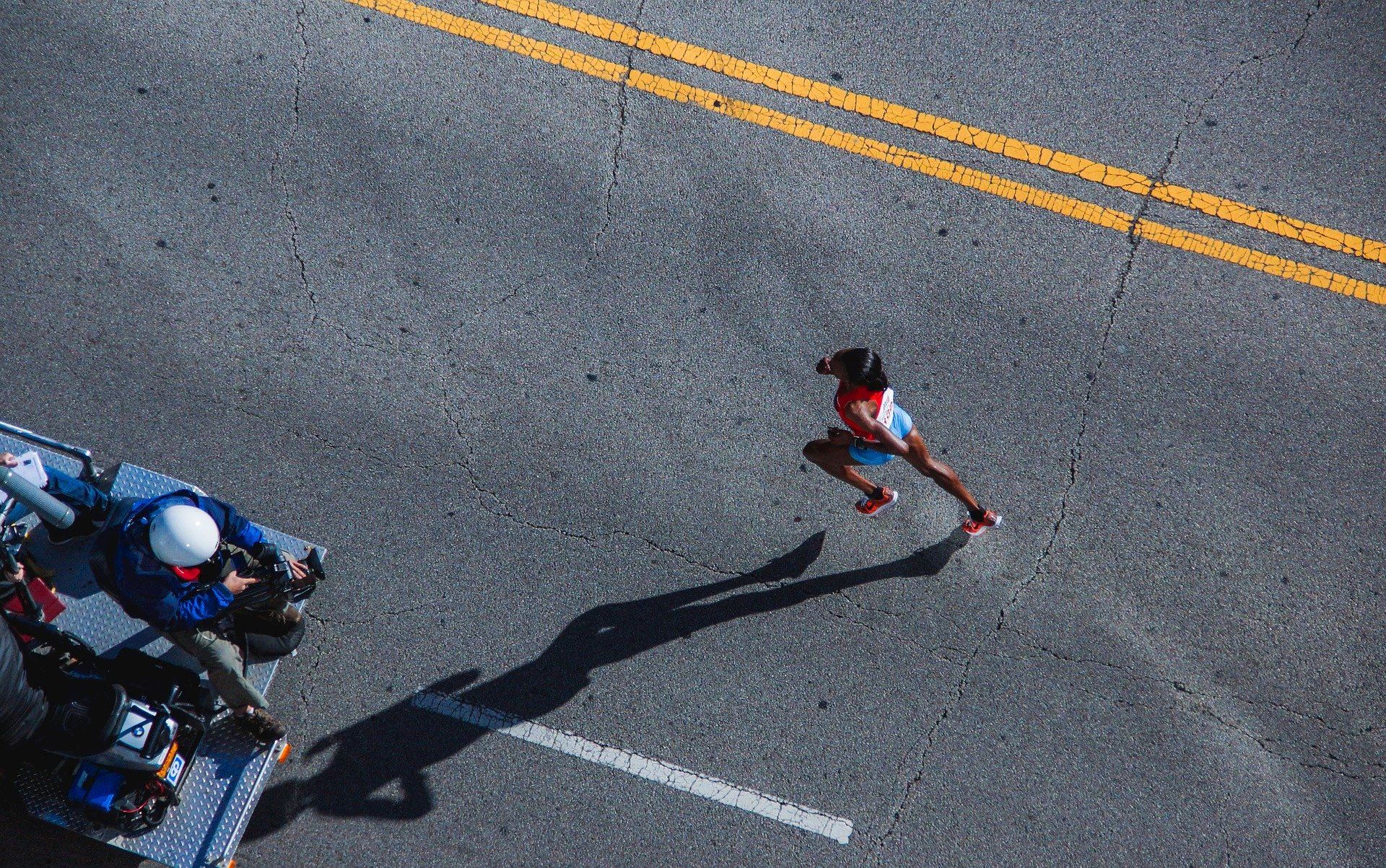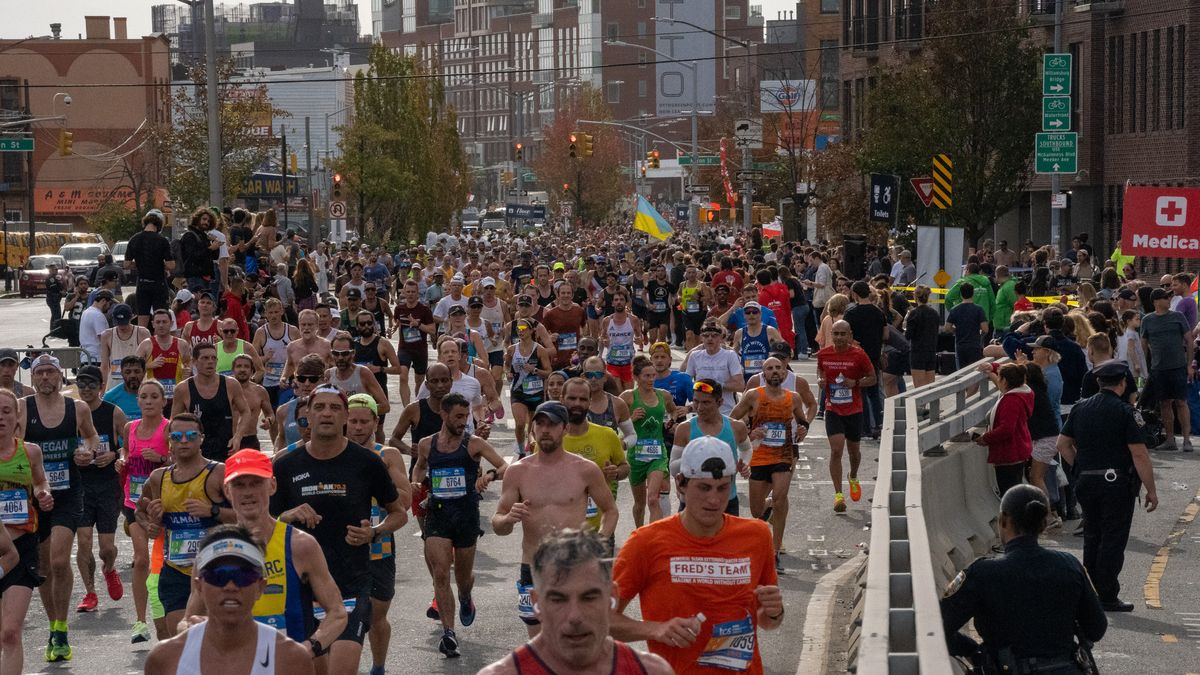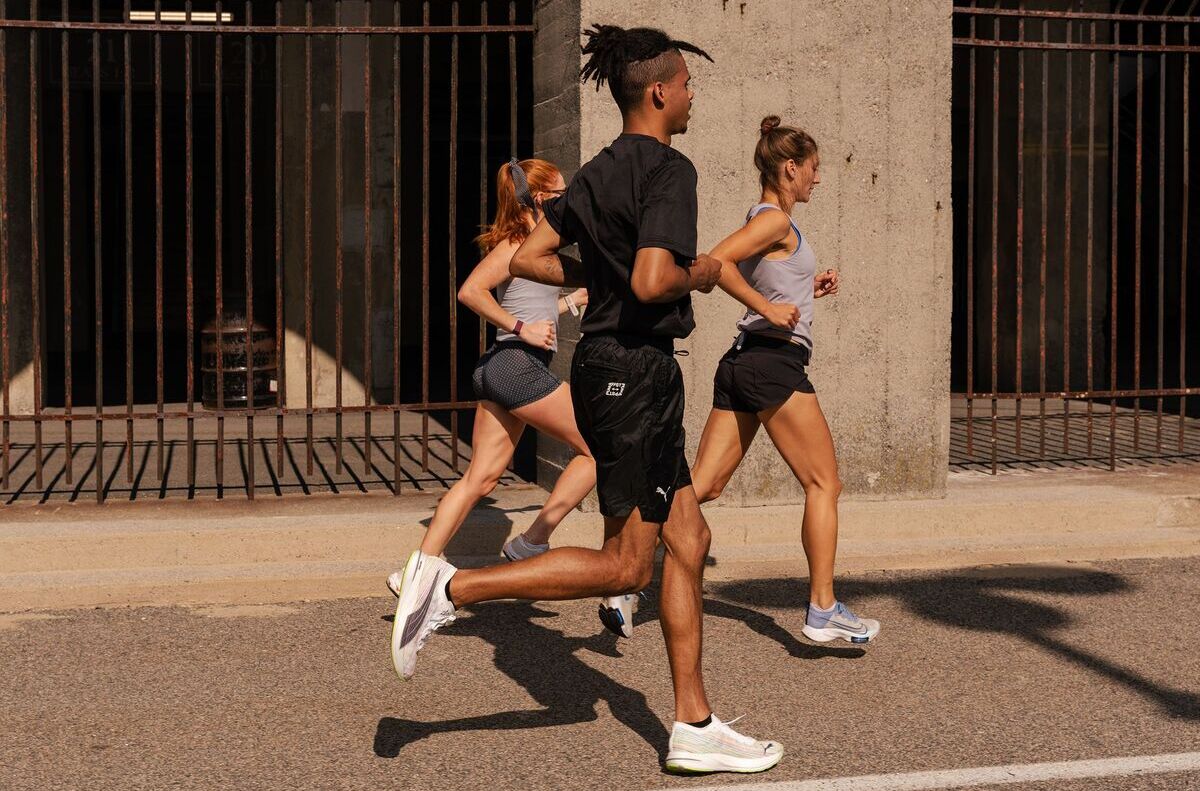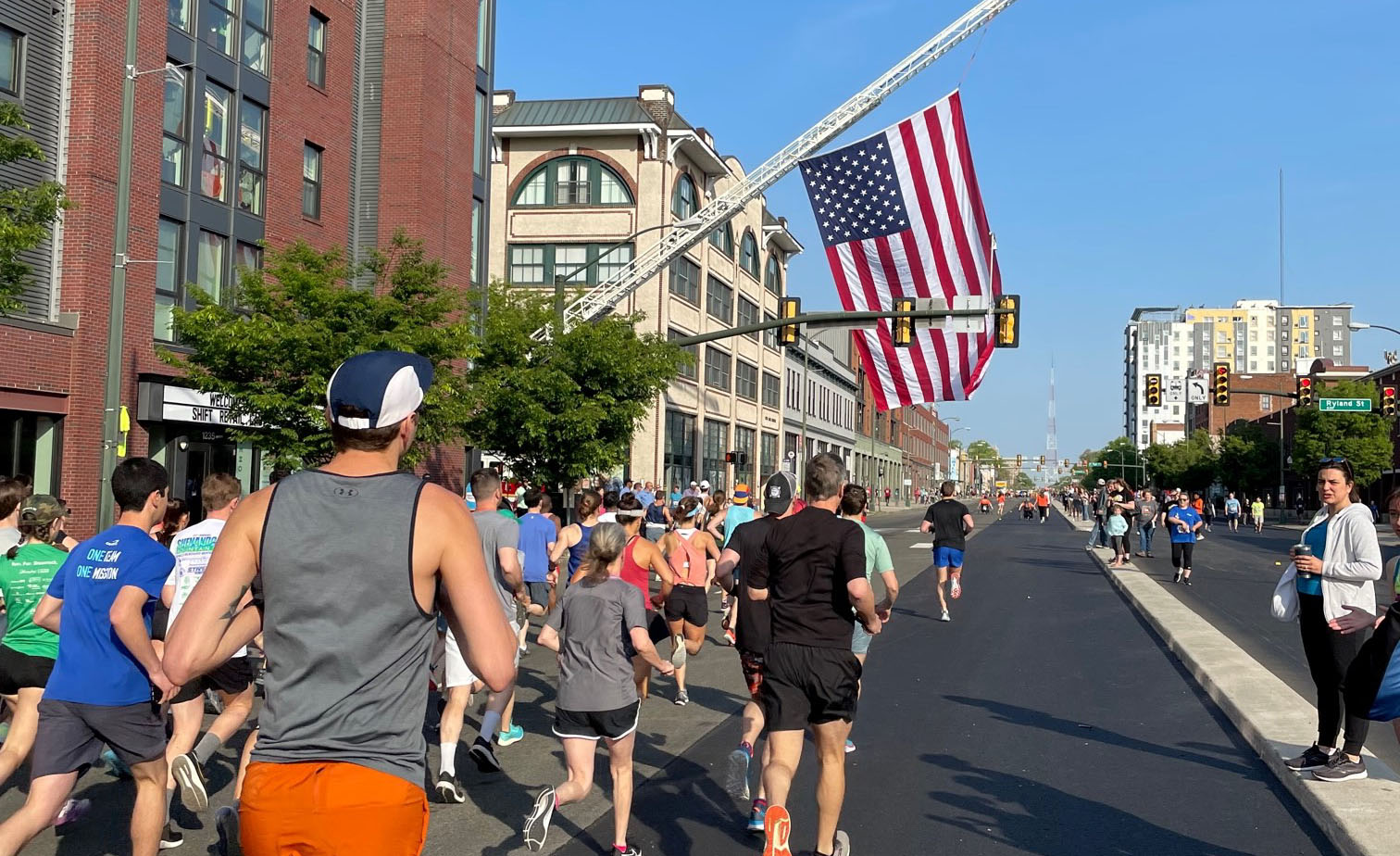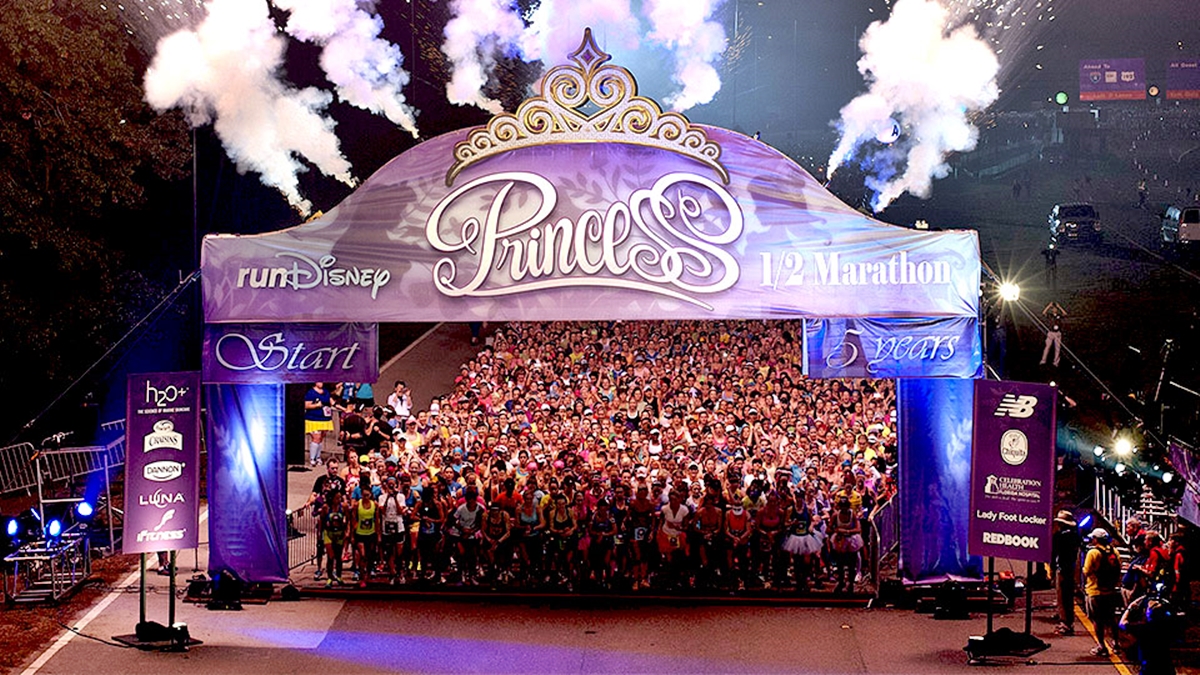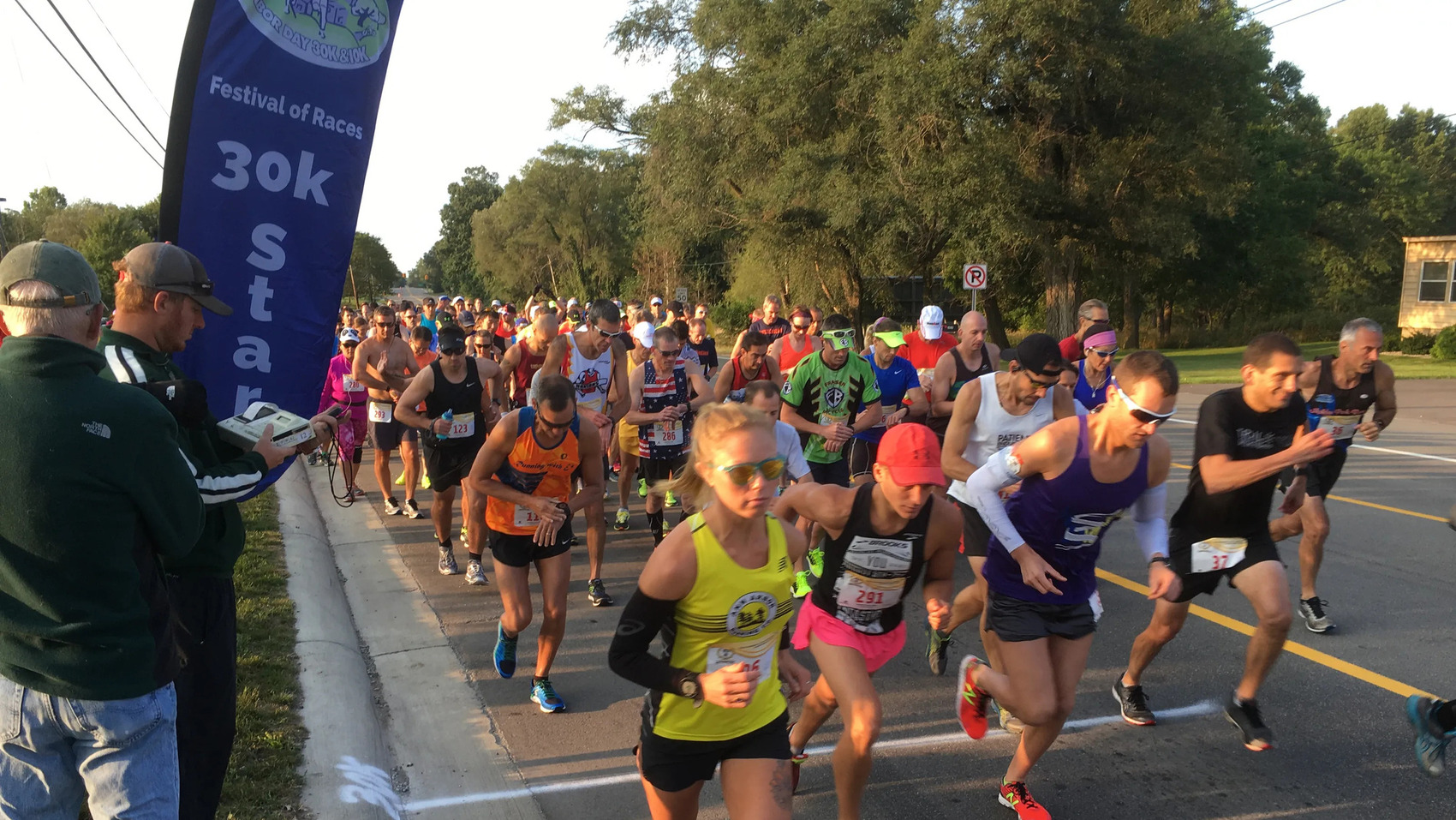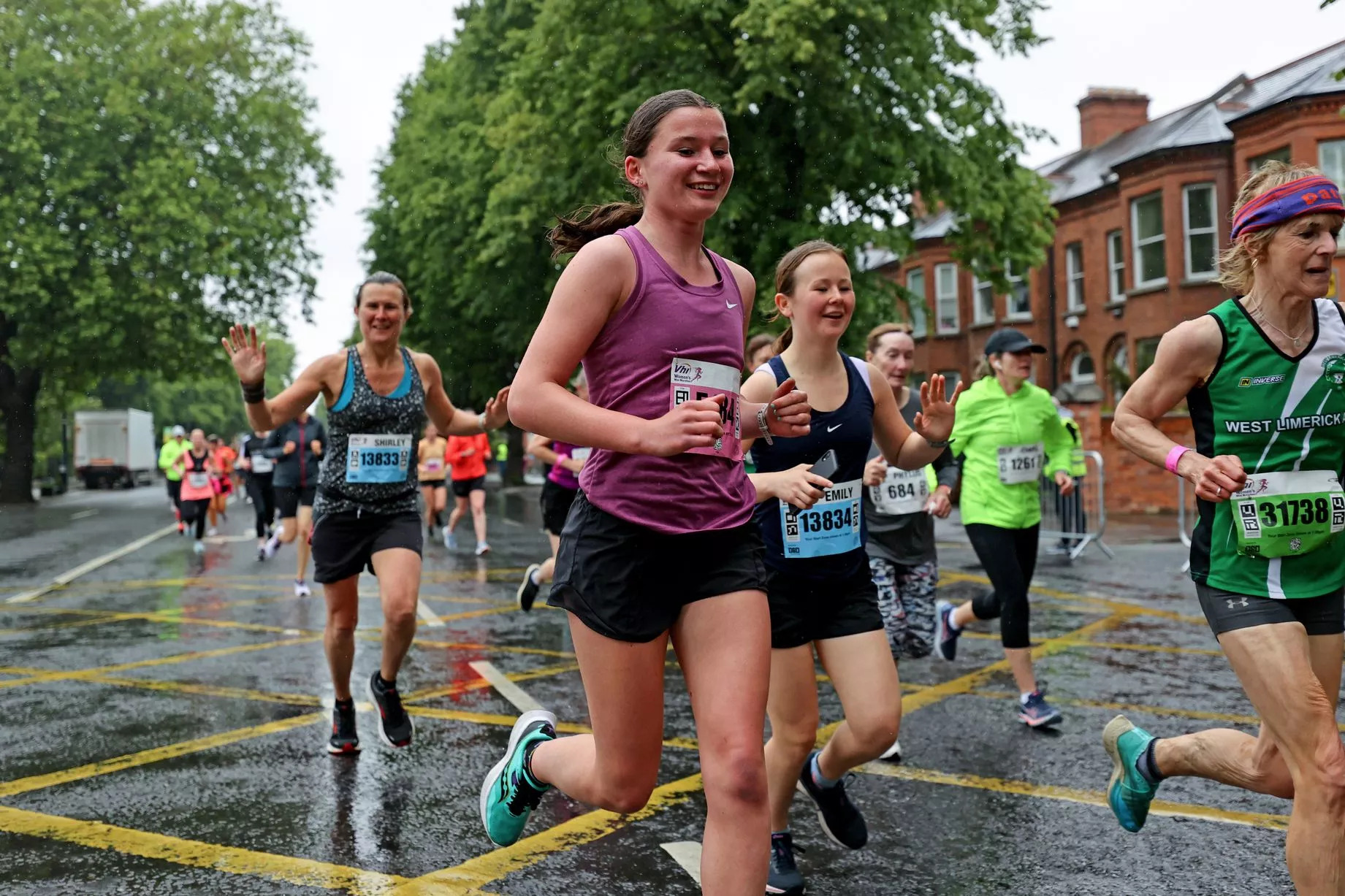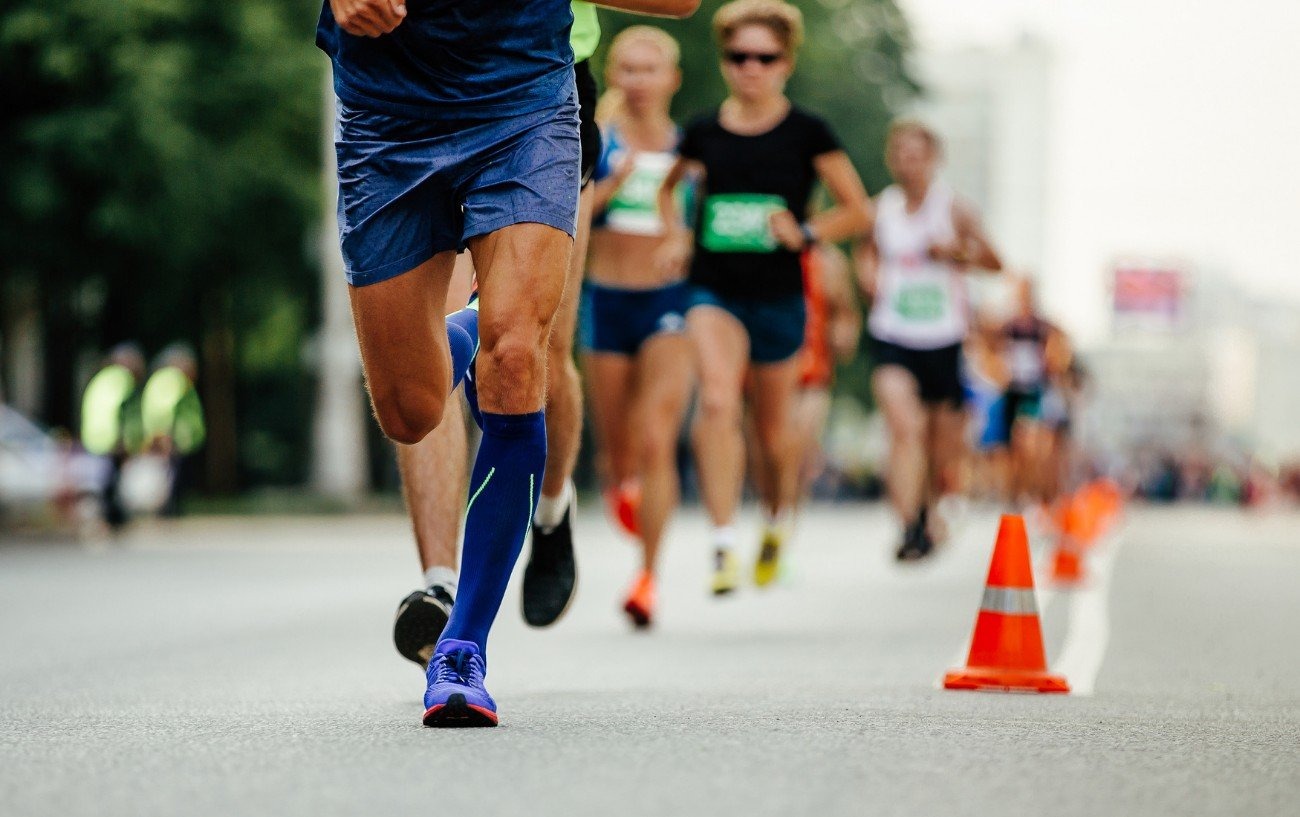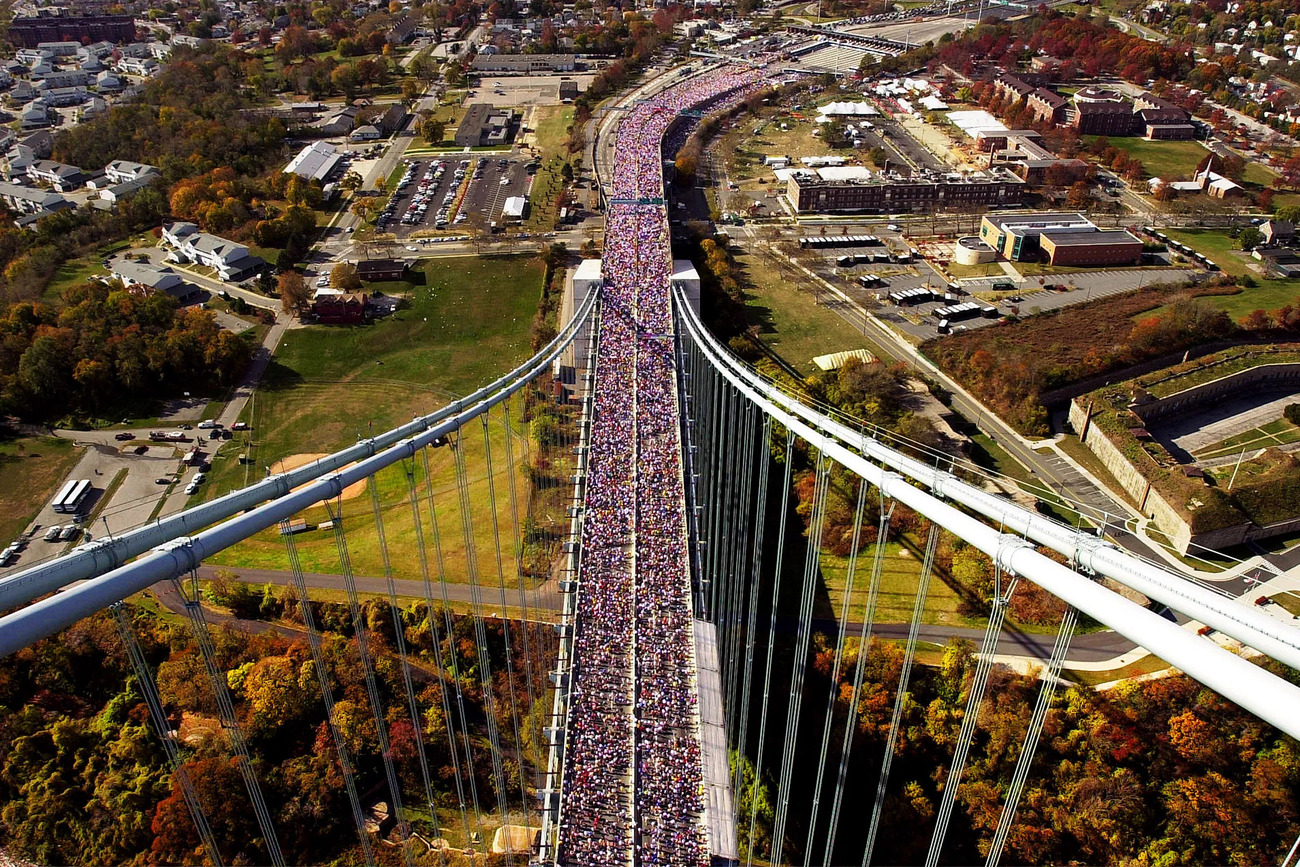

Featured
How Long Is A 10K Marathon
Modified: August 21, 2023
Discover the answer to the question "How Long Is a 10K Marathon" in this featured article. Gain insights on the distance covered in a 10K race and start your training today!
Introduction
Welcome to the world of 10K marathons, where endurance and determination come together to create an unforgettable experience. Whether you are a seasoned runner looking to challenge yourself or a beginner seeking a new fitness goal, the 10K marathon offers a perfect opportunity to test your limits and push yourself to new heights.
A 10K marathon is a popular distance race that attracts thousands of participants from all walks of life. It is a thrilling event that showcases the incredible human spirit and the power of perseverance. In this article, we will explore the distance of a 10K marathon, the time it typically takes to complete, the factors that can impact the duration, and provide tips for training and successfully crossing the finish line.
So, whether you are gearing up for your first 10K marathon or simply curious about the world of distance running, let’s dive in and discover just how long a 10K marathon really is.
What is a 10K Marathon?
A 10K marathon, also known as a 10-kilometer race, is a long-distance running event that covers a distance of 10 kilometers (6.2 miles). It is one of the most popular race distances among runners of all levels, from beginners to elite athletes. Whether you are a casual runner looking for a personal challenge or a serious competitor seeking to improve your race times, the 10K marathon offers an exciting opportunity to test your limits and experience the exhilaration of a race.
The 10K marathon is a well-rounded race distance that provides a balance between endurance and speed. It requires both aerobic and anaerobic fitness, making it a challenging but achievable goal for many runners. For beginners, completing a 10K marathon can be a significant milestone in their running journey, pushing them to build endurance and develop a consistent training routine.
Typically, 10K marathons are organized as road races, held on city streets or designated race courses. However, there are also trail races and virtual races that allow participants to complete the distance on their own, choosing their preferred terrain and location.
What sets the 10K marathon apart from shorter races, such as a 5K or a 1-mile race, is the increased physical and mental endurance required to sustain a faster pace over the longer distance. This distance is often seen as a stepping stone towards longer races such as half-marathons or full marathons, providing a solid foundation for runners to progress further in their running journey.
Regardless of your running experience or goals, a 10K marathon can be a rewarding and fulfilling experience. It allows you to challenge yourself, improve your fitness level, and celebrate your accomplishments as you cross the finish line.
The Distance of a 10K Marathon
The distance of a 10K marathon is 10 kilometers, which is equivalent to approximately 6.2 miles. This challenging but accessible distance provides runners with a significant test of endurance and speed.
When visualizing the distance of a 10K marathon, imagine running from one point to another with a total distance of 10 kilometers. It could be the equivalent of running four times around a standard running track, or exploring a scenic route in your neighborhood or local park.
The route for a 10K marathon can vary depending on the race organizer and location. Some races are held on flat, paved roads, providing a fast and straightforward course for runners. Other races may include rolling hills or challenging terrain, adding an extra element of difficulty to the race.
During a 10K marathon, runners will encounter a blend of physical and mental challenges. The distance requires a consistent pace and the ability to sustain effort for a relatively extended period. It is important for participants to find a comfortable rhythm and pace themselves accordingly to avoid burning out too soon in the race.
While the distance of a 10K marathon may seem daunting to some, it is important to remember that with proper training and preparation, anyone can tackle this challenge. Many runners, even those starting from scratch, have successfully completed their first 10K marathon and experienced a sense of accomplishment and pride.
So lace up your running shoes, set your sights on the 10K marathon distance, and embrace the journey. With dedication and determination, you will conquer this distance and cross the finish line with a newfound sense of achievement.
How Long Does it Take to Complete a 10K Marathon?
The time it takes to complete a 10K marathon can vary widely depending on individual fitness levels, running experience, and race conditions. For elite runners, completing a 10K marathon can often be achieved in under 30 minutes, while beginners may take an hour or longer to finish.
Elite athletes who specialize in shorter distance races have been known to finish a 10K marathon in record-breaking times. These individuals possess exceptional speed and endurance, allowing them to maintain a swift pace throughout the entire race. Their training and dedication to their craft enable them to effortlessly glide through the 10-kilometer distance.
Recreational runners, on the other hand, may take longer to complete a 10K marathon. This is perfectly normal and should not discourage anyone from participating. The joy of running lies in personal progress and challenging oneself, regardless of the finish time.
For most runners, completing a 10K marathon falls within a range of 45 minutes to 1 hour and 30 minutes. However, it’s important to note that individual abilities and goals can greatly influence the duration. Some runners may aim for a specific time goal and push themselves to maintain a faster pace, while others may steadily pace themselves to enjoy the entire race experience.
Factors such as terrain, weather conditions, elevation changes, and your own personal fitness level can affect the time it takes to complete a 10K marathon. It’s essential to remember that everyone has their own unique journey, and the most important thing is to challenge yourself and enjoy the process.
Regardless of the time it takes to complete a 10K marathon, the sense of accomplishment and pride that comes from crossing the finish line remains the same. Every runner should celebrate their own personal victories and embrace the journey of running a 10K marathon.
Factors Affecting the Time to Complete a 10K Marathon
Several factors can impact the time it takes to complete a 10K marathon. It is essential to consider these variables when setting goals and expectations for your race. Understanding these factors can help you better prepare and adjust your training strategy accordingly.
1. Fitness Level: Your current fitness level plays a significant role in determining how long it will take you to complete a 10K marathon. Regular training, including cardiovascular exercise and strength training, can improve endurance and speed, allowing you to run at a faster pace and finish the race more quickly.
2. Training Consistency: Consistency is key in running. The time you invest in your training and the regularity with which you run can greatly impact your performance and overall race time. The more consistent and dedicated you are in your training, the better your chances of achieving a faster time.
3. Terrain and Elevation: The route of the 10K marathon, including the terrain and elevation changes, can affect your pace and finishing time. Running on flat, paved roads can make for a faster race, while hills and uneven terrain can slow you down. Take into account the characteristics of the race course and adjust your strategy accordingly.
4. Weather Conditions: Weather conditions can have a significant impact on race times. Running in extreme heat, high humidity, or heavy rain can make the race more challenging and can slow down your pace. It’s important to stay aware of the weather forecast and adjust your strategy accordingly.
5. Race Strategy: Your approach and strategy during the race can influence your finishing time. Factors such as pacing, hydration, and fueling techniques can determine how well you maintain your energy levels and endurance throughout the race. Develop a race strategy that works best for you and stick to it.
6. Mental Strength: Running a 10K marathon requires mental fortitude and determination. Your mindset can impact your overall performance and race time. Developing mental strength through visualization techniques, positive self-talk, and staying focused on your goals can help you maintain a strong pace and finish the race more efficiently.
It is important to remember that every runner is different, and while these factors may affect your race time, they should not discourage you from participating or hinder your enjoyment of the experience. Embrace the challenges and celebrate the progress you make along the way.
Training for a 10K Marathon
Preparing for a 10K marathon requires a well-rounded training plan that includes a combination of running, strength training, and proper rest and recovery. Whether you are a beginner or an experienced runner, following a structured training program can help you build endurance, increase speed, and minimize the risk of injuries.
Here are some essential components to consider when training for a 10K marathon:
1. Build a Base: If you are new to running or haven’t been consistently active, it is important to start by building a base level of fitness. Begin with a mix of walking and running, gradually increasing your mileage and intensity over time to avoid overexertion or injury.
2. Gradual Progression: Gradually increase your mileage and running intensity, allowing your body to adapt and strengthen. Aim to increase your weekly mileage by no more than 10% to prevent overuse injuries. Incorporate a mix of long runs, tempo runs, interval training, and recovery runs to improve both your endurance and speed.
3. Strength Training: Incorporate regular strength training into your routine to build muscular strength and prevent imbalances. Focus on exercises that target muscles used in running, such as the legs, core, and glutes. Include exercises like squats, lunges, planks, and hip bridges to improve your overall strength and stability.
4. Cross-Training: Cross-training activities such as cycling, swimming, or yoga can complement your running training and provide variety. These activities can improve cardiovascular fitness, flexibility, and overall muscular endurance, reducing the risk of overuse injuries and enhancing your performance.
5. Rest and Recovery: Rest days are essential for allowing your body to recover and adapt to the training load. Make sure to schedule rest days into your training plan and listen to your body’s signals. Adequate sleep, proper nutrition, and active recovery techniques such as foam rolling or stretching should be prioritized to aid in recovery.
6. Proper Nutrition and Hydration: Fuel your body with a balanced diet that includes a mix of carbohydrates, proteins, and healthy fats. Proper hydration is crucial for optimal performance, so drink plenty of water throughout the day and during your training runs.
7. Listen to your Body: Pay attention to any pain or discomfort during your training. It’s important to differentiate between normal muscle soreness and potential injuries. If you experience persistent pain, seek professional advice from a healthcare provider or a sports medicine specialist.
Remember, every runner is unique, and it is important to listen to your body, adjust your training plan as needed, and prioritize your overall well-being. Training for a 10K marathon requires commitment, consistency, and patience. Enjoy the process, and celebrate the progress you make along the way.
Tips for Successfully Completing a 10K Marathon
Completing a 10K marathon can be a challenging but highly rewarding achievement. Here are some tips to help you approach the race with confidence and successfully cross the finish line:
1. Set Realistic Goals: Determine your goals for the race based on your current fitness level and previous running experience. Whether it’s completing the distance, aiming for a specific time, or simply enjoying the experience, setting realistic goals will help you stay motivated and focused throughout your training and on race day.
2. Follow a Training Plan: Consistency is key when training for a 10K marathon. Follow a structured training plan that gradually increases your mileage and intensity. Make sure to include a mix of running workouts, strength training, and rest days to balance your training and prevent overuse injuries.
3. Practice Pacing: Find a comfortable pace that you can maintain throughout the race. Start conservatively and gradually increase your speed if you’re feeling good. Avoid going out too fast in the beginning, as this can lead to fatigue later on. Practice pacing during your training runs to develop a good sense of your comfortable race pace.
4. Dress Appropriately: Wear moisture-wicking, comfortable clothing and proper running shoes that have been broken in. Dress according to the weather conditions on race day and consider layers that can be easily adjusted as needed. Avoid wearing new gear or trying anything new on race day to prevent discomfort or blisters.
5. Hydrate and Fuel: Prioritize proper hydration and fueling during your training runs and on race day. Drink water or electrolyte-rich fluids before, during, and after the race to stay hydrated. Consume small, easily digestible meals or snacks before the race to ensure you have enough energy to sustain your effort.
6. Warm Up: Before the race, perform a dynamic warm-up routine to prepare your muscles for the physical demands of running. Include exercises such as leg swings, lunges, and high knees to activate your muscles and increase your range of motion.
7. Mental Preparation: Mental strength plays a vital role in successfully completing a 10K marathon. Stay positive and focus on your training and achievements leading up to the race. Visualization techniques and positive self-talk can help you stay motivated and overcome any challenges you may face during the race.
8. Enjoy the Experience: Remember to have fun and enjoy the entire race experience. Take in the scenery, cheer on other participants, and soak in the atmosphere. Remember, the journey is just as important as the destination.
9. Listen to Your Body: Pay attention to any warning signs of injury or fatigue during the race. If you experience pain or discomfort, slow down or stop if necessary. It is better to take a break and seek medical assistance if needed rather than push through and risk worsening an injury.
10. Celebrate Your Achievement: Crossing the finish line of a 10K marathon is a significant accomplishment. Take a moment to celebrate your hard work and the progress you have made. Whether it’s with a personal treat, a post-race meal, or sharing your achievement with loved ones, reward yourself for your efforts.
Remember, every runner’s journey is unique. Embrace the challenge, stay determined, and enjoy the process of completing a 10K marathon.
Conclusion
The 10K marathon is a distance that unlocks a realm of possibilities for runners of all levels. It presents a unique challenge that requires both physical and mental strength. Whether you are a seasoned runner aiming to improve your race times or a beginner looking for a new fitness goal, the 10K marathon offers an exciting and achievable opportunity.
Throughout this article, we have explored what a 10K marathon is, the distance it covers, the time it takes to complete, and factors that can affect your race. We have also delved into training strategies and provided tips for successfully crossing the finish line.
From building a solid training base to setting realistic goals, and from understanding the factors that impact your race time to practicing proper pacing and fueling, each step of the journey contributes to a successful 10K marathon experience.
Remember, every runner’s journey is unique. Whether you aim to achieve a personal best or simply complete the distance, the key is to embrace the journey, enjoy the process, and celebrate your accomplishments along the way.
So lace up your running shoes, put your training plan into action, and prepare yourself for the exhilarating challenge that awaits you. Whether you’re in it for the thrill of competition or the joy of personal achievement, the 10K marathon will push you to new heights and leave you with a profound sense of pride and accomplishment.
So go out there, chase your dreams, and conquer the 10K marathon – you’ve got this!
